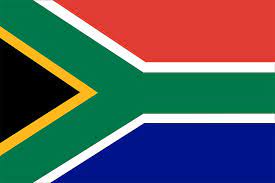
Several countries have debated the possibility of introducing Unexplained Wealth Orders (UWOs) into their legal systems, but most have decided to maintain the traditional confiscation regime. Few have ventured into the area of UWOs, and some of those that have done so have faced constitutional and legal challenges. Other countries have adopted only some aspects of UWO laws and South Africa is one of those. It has been classified as one of those Countries with non-conviction-based confiscation laws and apply them to all offenses that have the presumption in favor of forfeiture for unlawful activities or specific offenses, but not full UWOs.
South Africa has rejected the idea of criminalizing illicit enrichment. It is of the opinion that recognition of such offence would be an intolerable measure and costly vis-a-vis due process and other fundamental rights (the right to presumption of innocence, the right to remain silent, the right against self-incrimination, the principle of legality, private ownership, right to privacy and right to liberty) which would be interfered with.
However, In a media briefing, South African Revenue Service (SARS) commissioner Edward Kieswetter says that the revenue collector has profiled a number of high-net-worth individuals who enjoy a ‘luxurious’ lifestyle and demonstrate unexplained wealth when compared to their income. SARS has the ability to access a number of databases that track high-ticket items, such as luxury cars and expensive property then capital reconciliation is done down to the income statement. He stated that more information can be established from the assets and liabilities of these wealthy individuals, as opposed to the income and expenses that they declare. He added that in certain cases, a civil investigation into an individual who is undeclaring an income turns into a criminal investigation as the person’s illicit dealings become clear.
The Commissioner says although chasing after tax evaders is hard work, the results are pleasing. About R4.5 billion has already been collected in taxes by using this process. There is also a volunteer disclosure program through which about R3.5 billion was collected from 1 800 applications through an approach of full disclosure on a voluntary basis.
The practical approach of directly holding officials criminally liable for unexplained increases in their wealth is working for South Africa, has considerable support in the jurisprudence of several countries, and is supported by international conventions and international human rights tribunals. As Professor Rod Broadhurst observed in testimony before the Australian Senate, “Tainted or unexplained wealth may be the only means to reliably identify criminal entrepreneurs whose involvement in the crime is usually indirect in terms of actual commission. The unexplained wealth laws deter those who contemplate criminal activity by reducing the possibility of gaining or keeping a profit from criminal activity and remedies the unjust enrichment of criminals who profit at society’s expense
